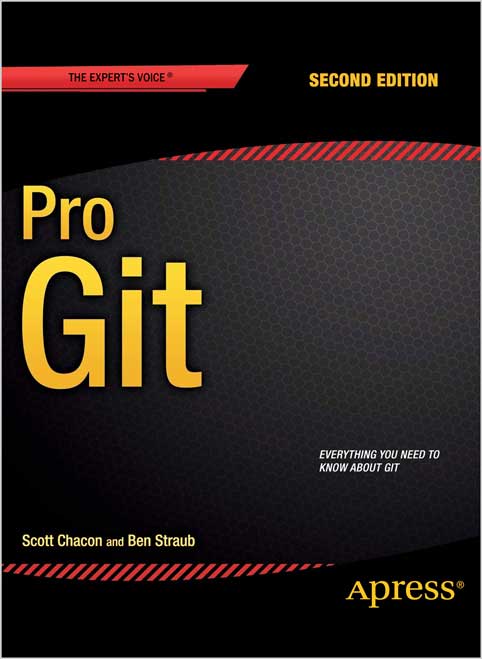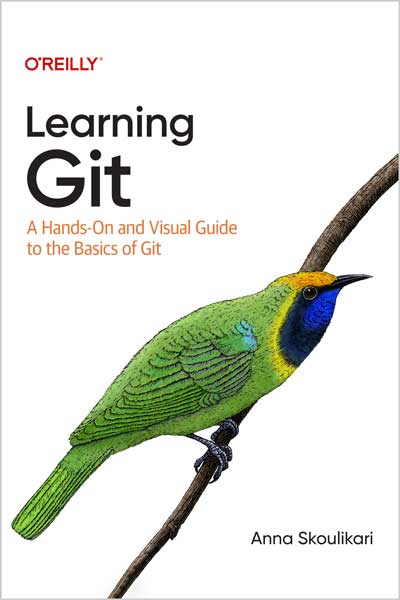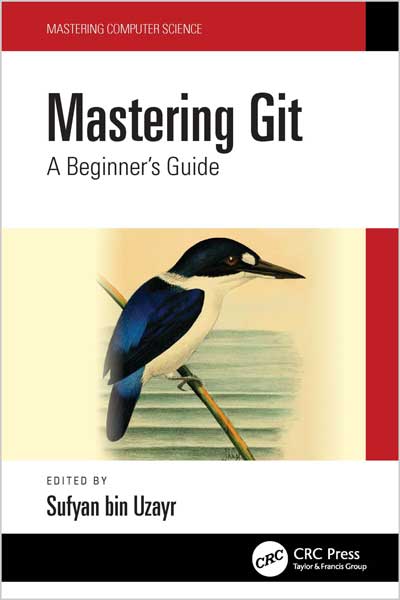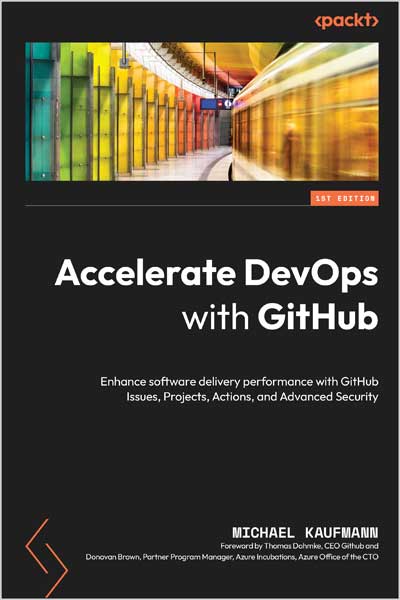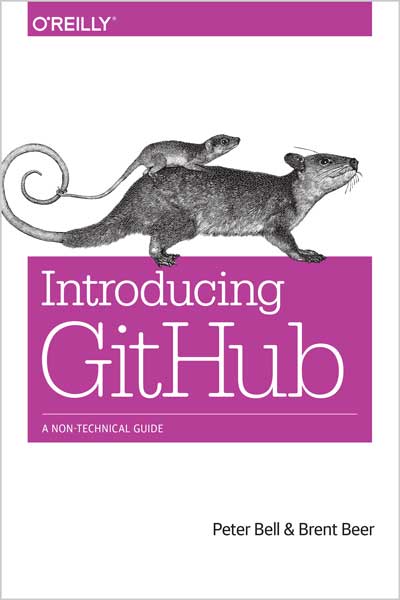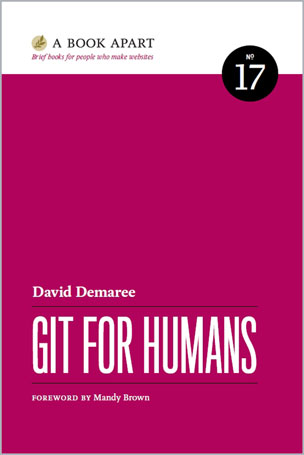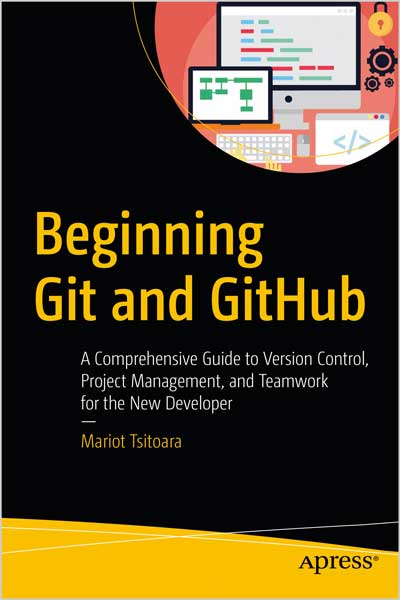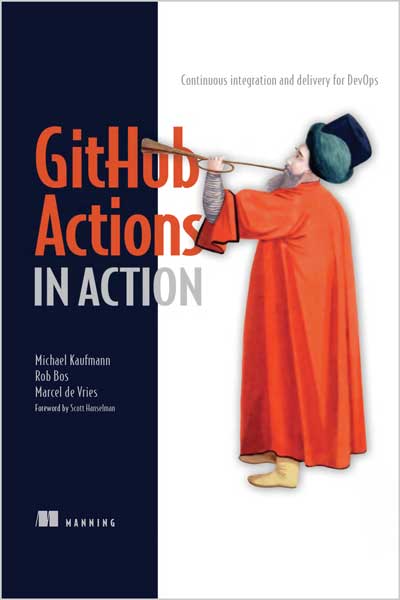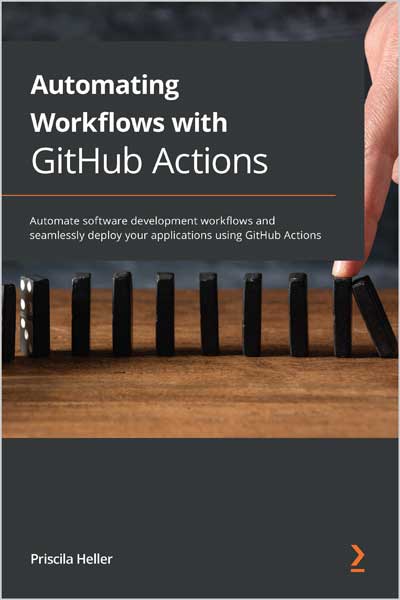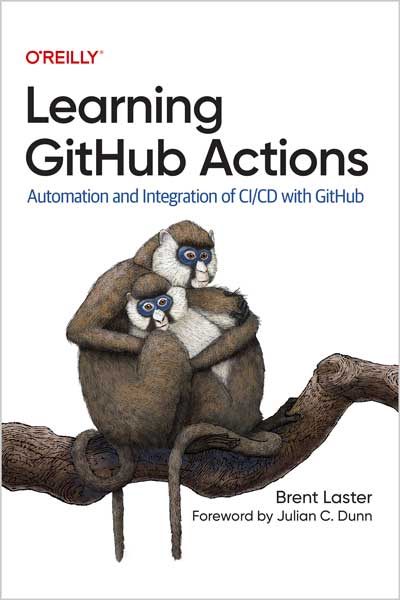Powerful Tools and Techniques for Collaborative Software Development
Prem Kumar Ponuthorai, Jon Loeliger
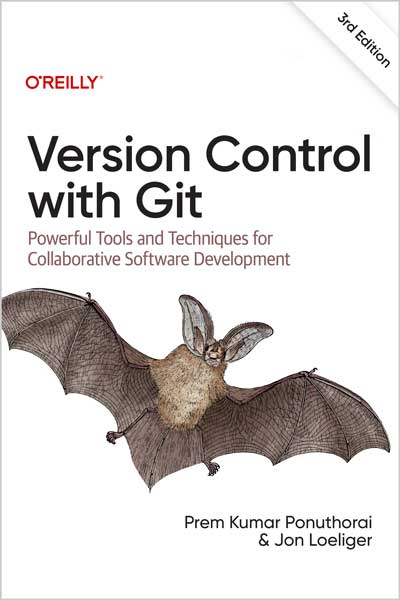
#Git
#GitHub
#open_source
#infrastructure_engineers
#DevOps
#software_engineers
Track, branch, merge, and manage code revisions with Git, the free and open source distributed version control system. Through a series of step-by-step tutorials, this practical guide quickly takes you from Git fundamentals to advanced techniques, and provides friendly yet rigorous advice for navigating Git's many functions. You'll learn how to work with everything from small to very large projects with speed and efficiency.
In this third edition, authors Prem Kumar Ponuthorai and Jon Loeliger break down Git concepts using a modular approach. You'll start with the basics and fundamental philosophy of Git, followed by intermediate commands to help you efficiently supplement your daily development workflow. Finally, you'll learn advanced Git commands and concepts to understand how Git
works under the hood.
- Learn how to use Git for real-world development scenarios
- Gain insight into Git's common use cases, initial tasks, and basic functions
- Use the system for distributed version control
- Learn how to manage merges, conflicts, patches, and diffs
- Apply advanced techniques such as rebasing, hooks, and ways to handle submodules
Git is a free, open source, distributed version control system created by Linus Torvalds. Git requires low operational overhead, yet is flexible and powerful enough to support the demands of complex, large-scale, distributed software development projects.
Our goal in this book is to show you how to get the most out of Git and how to manage a Git repository with ease. By the end, you will have learned Git’s philosophy, fundamental concepts, and intermediate to advanced skills for tracking content, collaborating, and managing your projects across teams.
Who This Book Is For
We wrote this book with software engineers (developers, infrastructure engineers, DevOps, etc.) in mind as our primary audience. As such, most of the concepts and examples we use relate to the daily routines and tasks of folks in the software development industry. However, Git is robust enough to track content in areas as varied as data science, graphic design, and book authoring, just to name a few. (Case in point: we used Git as our underlying versioning system to keep track of reviews and edits while writing this book!) Regardless of your title or level of proficiency, if you are using Git as your version control system, you will find value in these pages.
Essential Know-How
Prior experience with any version control system, its aims, and its goals will be a helpful foundation to understand how Git works and to build upon your knowledge as you read this book. You should have some familiarity with using any command-line tool, such as the Unix shell, along with basic knowledge of shell commands, because we use a lot of command-line instructions in the examples and discussions in the book. A general understanding of programming concepts is also a plus.
We developed the examples on the macOS and Ubuntu environments. The examples should work under other platforms such as Debian, Solaris, and Windows (using Git-installed command-line tools, such as Git for Windows), but you can expect slight variations.
Some exercises in the examples may require system-level operations that need root access on machines. Naturally, in such situations you should have a clear understanding of the responsibilities of operations that need root access.
New in This Revision
In this third edition, we take an entirely new, modular approach to the topics by breaking down the concepts of Git. We start by introducing you to the basics and the fundamental philosophy of Git, then gradually build upon intermediate commands to help you efficiently supplement your daily development workflow, and finally conclude with advanced git commands and concepts to help you become proficient in understanding the inner mechanics of how Git works under the hood.
Another change we made in this edition was adding more illustrations to explain complex Git concepts to give you a mental model for easier comprehension. We also highlight features from the latest release of Git and provide you with examples and tips that can help improve your current distributed development workflow.
Review
"This book progresses from the most basic Git concepts to advanced usage, so it will serve both readers who are new to Git as well as experienced users looking for tips and tricks. I especially liked how it explains fundamental Git concepts and data models, which helps the reader truly understand what's going on rather than blindly learning commands."
Jeff King - Git Contributor, Open Source Developer
"This book has been absolutely superb in my learning of Git. It has been easy to follow, has a clear structure with good examples, and the turn of phrase is brilliant in describing what can be quite complicated topics. I have often found with other software education books that the waters can get muddied quite quickly, but this is incredibly clear and concise. I will be recommending it to my team!"
Gus Shaw Stewart - Services Delivery Engineer GitHub
About the Author
Prem Kumar Ponuthorai is responsible for strategizing and enabling GitHub's offerings for the Expert Services Delivery organization. Having built on his software engineering background by becoming a Git convert, Prem has given Git workshops at conferences and provided training in Git for enterprise customers across diverse industries.
Jon Loeliger is a freelance software engineer who contributes to Open Source projects such as Linux, U-Boot, and Git. He has given tutorial presentations on Git at many conferences including Linux World, and has written several papers on Git for Linux Magazine.
In prior lives, Jon has spent a number of years developing highly optimizing compilers, router protocols, Linux porting, and the occasional game. Jon holds degrees in Computer Science from Purdue University. In his spare time, he is a home winemaker.
